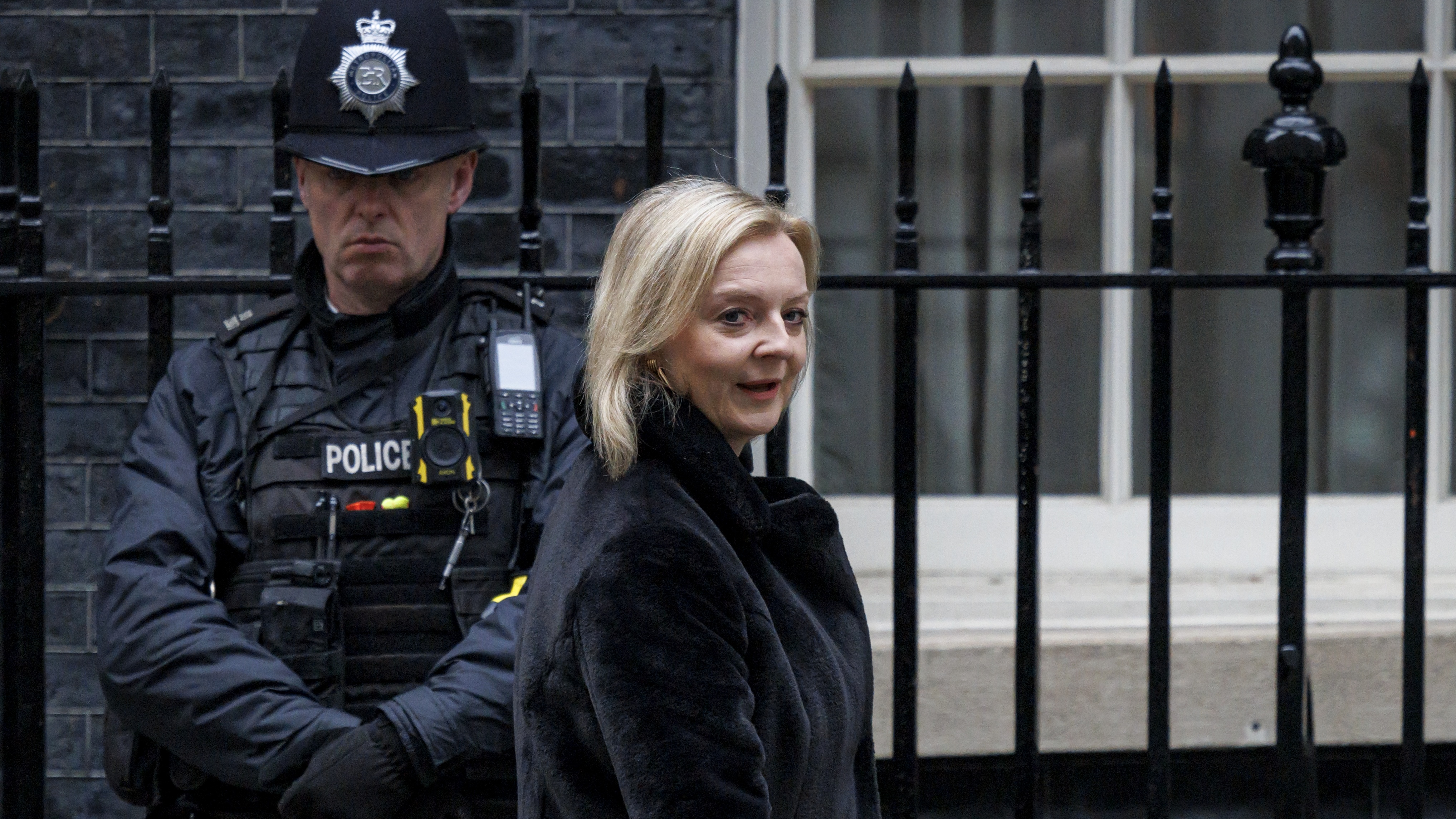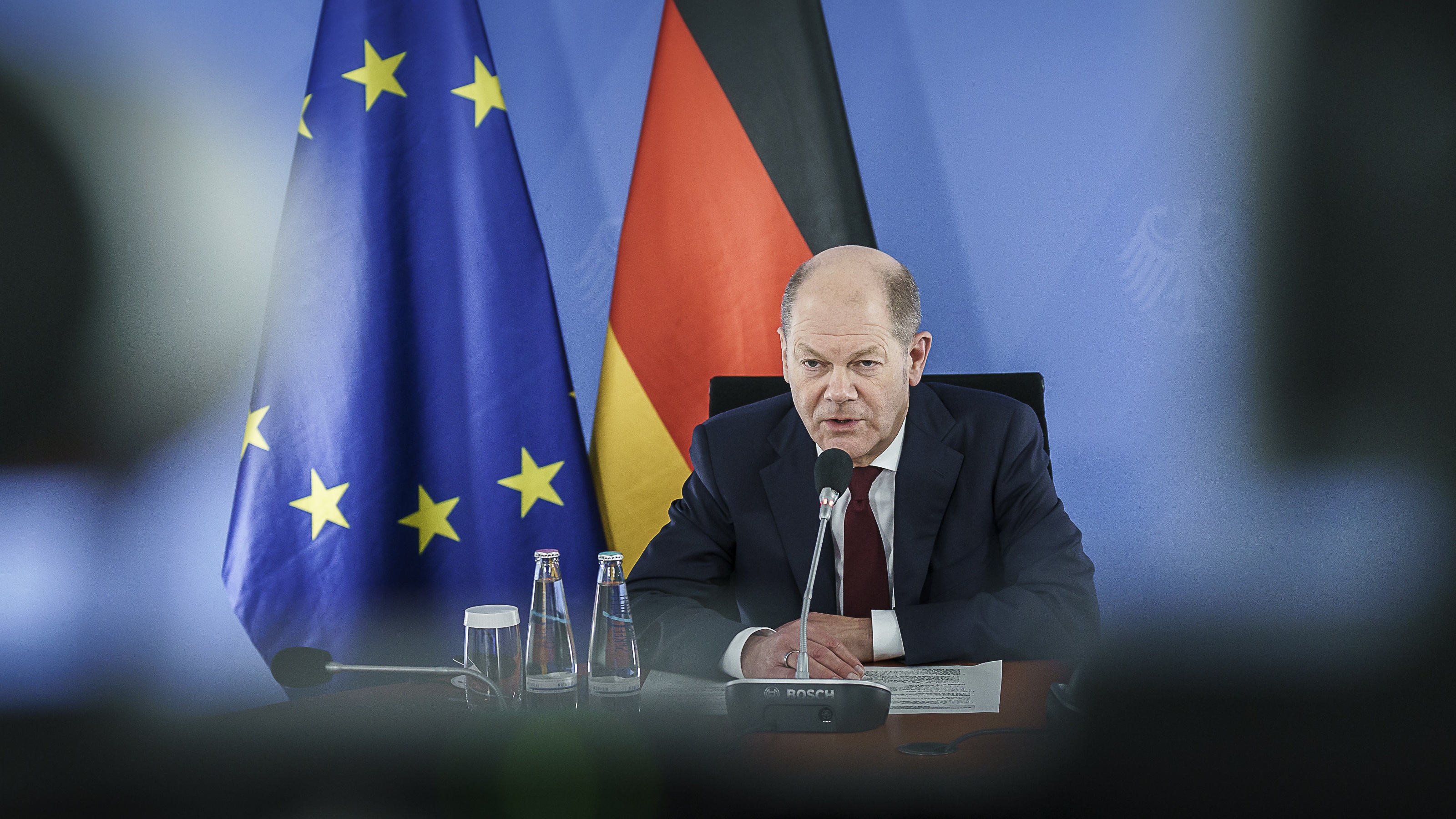Russian spy from British embassy jailed for 13 years
David Ballantyne Smith is ‘a far cry from the thrilling figures drawn in espionage folklore’

A free daily email with the biggest news stories of the day – and the best features from TheWeek.com
You are now subscribed
Your newsletter sign-up was successful
A former security guard at the UK embassy in Berlin has been sentenced to 13 years and two months in prison for spying for Russia.
David Ballantyne Smith, 58, pleaded guilty at the Old Bailey to eight charges under the Official Secrets Act. He admitted passing secret information to the Russian authorities but claimed he did not intentionally cause any harm.
Mr Justice Wall said that, in 2020, Smith “established a contact at the Russian embassy” and passed on information, including annotated photos of staff at the British embassy. “You put those people at maximum risk,” the judge said.
The Week
Escape your echo chamber. Get the facts behind the news, plus analysis from multiple perspectives.

Sign up for The Week's Free Newsletters
From our morning news briefing to a weekly Good News Newsletter, get the best of The Week delivered directly to your inbox.
From our morning news briefing to a weekly Good News Newsletter, get the best of The Week delivered directly to your inbox.
Smith, who worked at the embassy in Berlin from 2016 until his arrest in August 2021, was caught in an undercover sting operation in which fake Russian agents offered him the chance to obtain “highly sensitive information”.
In his defence, he argued that he had only wanted to “inconvenience and embarrass” the embassy, and was suffering from depression at the time.
Smith, from Paisley in Scotland, was a “far cry from the mysterious and thrilling figures drawn in espionage folklore”, said the Evening Standard. Although he had a John Le Carré novel on his bookshelf, he is “the polar opposite of characters from fiction: A man who spent his days at home alone drinking beer, lonely and angry”.
Sky News noted that colleagues said they heard Smith criticise the UK and Germany and that he admitted to supporting Russian-backed forces in the Donbas region of Ukraine.
A free daily email with the biggest news stories of the day – and the best features from TheWeek.com
The judge said that there is a strong public interest in protecting secret information, and the sentence must act as a deterrent to others.
“It is not for me to say where your sentence will be served,” he told Smith. The length of his imprisonment will depend on whether he is held in the UK – where he could be released on licence – or in Germany, where rules differ, said the BBC.
-
 How the FCC’s ‘equal time’ rule works
How the FCC’s ‘equal time’ rule worksIn the Spotlight The law is at the heart of the Colbert-CBS conflict
-
 What is the endgame in the DHS shutdown?
What is the endgame in the DHS shutdown?Today’s Big Question Democrats want to rein in ICE’s immigration crackdown
-
 ‘Poor time management isn’t just an inconvenience’
‘Poor time management isn’t just an inconvenience’Instant Opinion Opinion, comment and editorials of the day
-
 ‘Stakeknife’: MI5’s man inside the IRA
‘Stakeknife’: MI5’s man inside the IRAThe Explainer Freddie Scappaticci, implicated in 14 murders and 15 abductions during the Troubles, ‘probably cost more lives than he saved’, investigation claims
-
 Ukrainian hackers’ hoax unmasks Russian pilots accused of Mariupol theatre bombing
Ukrainian hackers’ hoax unmasks Russian pilots accused of Mariupol theatre bombingSpeed Read Military wives and girlfriends duped into posing for photoshoot in ‘virtual false-flag operation’
-
 Russia says it has arrested 8 people over Crimea bridge blast
Russia says it has arrested 8 people over Crimea bridge blastSpeed Read
-
 The Overview podcast: what can London do about Russian money launderers?
The Overview podcast: what can London do about Russian money launderers?podcast UK is cracking down on Russian dirty money in the English capital following Ukraine invasion
-
 Russia has lists of prominent Ukrainian figures to arrest or kill should Moscow invade, U.S. officials say
Russia has lists of prominent Ukrainian figures to arrest or kill should Moscow invade, U.S. officials saySpeed Read
-
 Is the UK at risk of Russian cyberattacks over Ukraine support?
Is the UK at risk of Russian cyberattacks over Ukraine support?Today's Big Question Security chiefs warn British firms to brace for Moscow-linked cyber disruption
-
 Why Germany is under attack over Russia-Ukraine stand-off
Why Germany is under attack over Russia-Ukraine stand-offIn Depth Mayor of Kiev accuses Berlin of ‘betrayal’ for refusing to back arms exports
-
 Why everybody’s talking about the public inquiry into undercover policing
Why everybody’s talking about the public inquiry into undercover policingIn Depth Long-delayed investigation into abuses by ‘spycops’ is one of the most complicated in British legal history